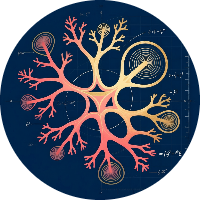
ixidor
Project OwnerDesign and implementation
DEEP Connects Bold Ideas to Real World Change and build a better future together.
Coming Soon
We propose a 4-month development of an adaptive compression and discovery service that treats compression as a form of machine understanding. The system profiles input data (e.g., JSON logs, time-series), discovers or generates optimal compression strategies, and expresses all knowledge as native MeTTa programs—ensuring full compatibility with the emerging MORK (MeTTa Optimal Reduction Kernel) ecosystem. By delivering a lean, hybrid architecture (MeTTa for symbolic control, Rust for performance) and defining the first practical MORK module type, this project accelerates AGI infrastructure while meeting the RFP’s functional requirements ahead of schedule.
This RFP seeks proposals to create a scalable and reusable adaptive compression service that discovers, elevates, and reuses patterns across multiple data domains.
Profiling & Template Schema
Implement a structural data profiler for common formats (JSON, logs, time-series) and define a MeTTa-native schema for compression templates, including pattern conditions, executable actions, and metadata (e.g., tags, input schema, performance hints).
$20,000 USD
Hybrid Runtime & Discovery Engine
Build a hybrid execution layer: MeTTa handles semantic discovery via pattern matching over the template registry, while Rust backends perform high-efficiency compression (e.g., zstd, delta encoding, dictionary coding). Templates are stored as versioned .metta files with lightweight manifests.
$30,000 USD
Adaptive Learning Loop
Close the feedback cycle: after each compression, evaluate metrics (ratio, speed, reconstruction fidelity) and use AIT-inspired heuristics—such as favoring shorter MeTTa descriptions—to refine or generate new templates. Integrate template synthesis into the knowledge base.
$25,000 USD
Validation & MORK Integration Prep
Test the system on diverse real-world datasets, document the module interface, and publish the code as open source. Produce a compatibility guide for future MORK runtime integration, establishing this service as a reference implementation.
$15,000 USD
Community Integration & Ecosystem Readiness
Engage with the AGI community, incorporate feedback, perform stress testing, and collaborate directly with MORK/MeTTa developers to refine interoperability.
$10,000 USD
Reviews & Ratings
Please create account or login to write a review and rate.
© 2025 Deep Funding
Join the Discussion (0)
Please create account or login to post comments.